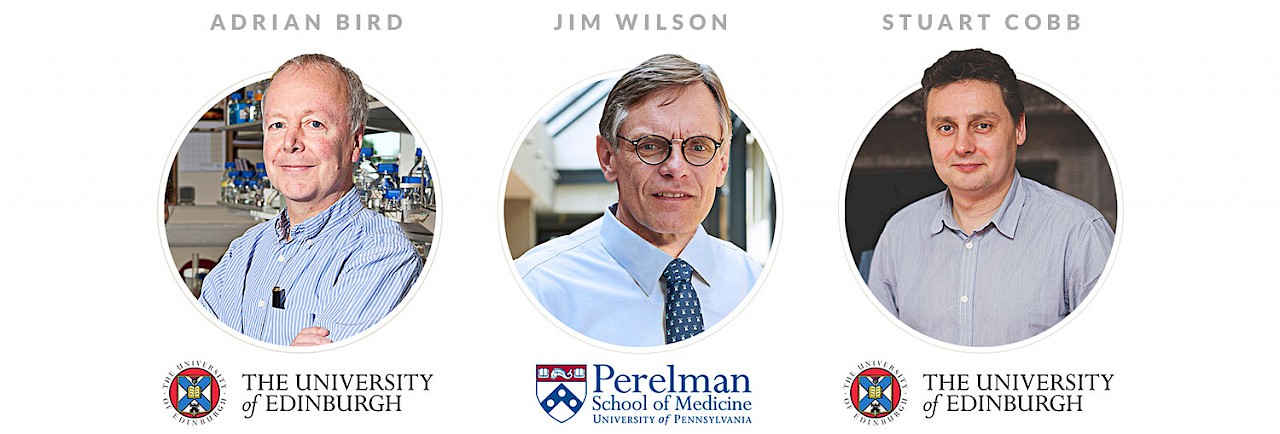World-Class Team Takes on Next Gen Gene Therapy

RSRT first started funding gene therapy efforts in 2010 with a collaboration between Gail Mandel, PhD and Brian Kaspar, PhD. That collaboration led to our original Gene Therapy Consortium that launched in 2014 with the inclusion of Steve Gray, PhD and Stuart Cobb,PhD.
The Consortium worked through numerous challenges involving vector optimization (the Trojan horse that delivers the gene into a cell), gene construct optimization (what you package into the vector that regulates MeCP2 protein production), gene therapy dosage, and the best route to deliver it.
The data generated by the Consortium exceeded our expectations. They were able to develop a gene therapy product candidate with impressive efficacy, safety and delivery characteristics. Importantly, the magnitude of improvement in the mouse models of Rett is much greater than that of any drug tested to date and suggests that significant benefit may be achieved in people. Based on that data AveXis committed to advancing a gene therapy candidate into clinical trials, and is on track to launch the first trial early in 2019.
While we fervently hope that the AveXis trial delivers significant and dramatic results we suspect there will be room for improvement. Fortunately, technological advances in gene therapy are happening quickly with more effective vectors being discovered that can carry larger DNA cargos and target a greater percentage of brain cells.
So today we announce a Gene Therapy Consortium 2.0 comprised of a world-class team: James Wilson, Adrian Bird and Stuart Cobb. The goal will be to have a next generation gene therapy product…should we need it.. ready for clinical testing by 2021.
James Wilson, MD, PhD, is a pioneer and a leader in the gene therapy field for decades and has played a pivotal role in the renaissance that the field is currently experiencing. He made a number of seminal discoveries including the discovery and development of the adeno-associated virus (AAV) that will be used by AveXis in the upcoming clinical trial. One of Dr. Wilson’s overarching objectives is improving delivery of genes to the brain which is of course extremely relevant to Rett Syndrome. Dr. Wilson is at UPENN where he runs the largest worldwide academic gene therapy program.
We welcome Adrian Bird, PhD of the University of Edinburgh to the Gene Therapy Consortium. As the world’s leading expert on MECP2 Professor Bird has become synonymous with Rett research. He discovered the MeCP2 protein in the early 1990s; made a mouse model that is used in hundreds of labs around the world; published the landmark paper that established the principle of reversibility for the disorder; and has made many significant contributions to the understanding of the function of the MeCP2 protein. Adrian Bird is a founding trustee of RSRT.
Rounding out the Consortium is an original member, Stuart Cobb, PhD. He recently moved from the University of Glasgow to the University of Edinburgh where he and his lab members work closely with Professor Bird. Dr. Cobb’s introduction to Rett came well over 10 years ago when he was approached by Professor Bird to conduct some neurophysiology experiments. He was a co-author on the 2007 reversibility paper and published the first gene therapy study in male mice using AAV2 and AAV9 vectors. Besides traditional gene therapy strategies Dr. Cobb is also pursuing RNA modification approaches.
Gail Mandel continues to be a core member of our team and is funded through the MECP2 Consortium. She will remain an advisor to the Gene Therapy Consortium.

The Gene Therapy Consortium 2.0 has almost $2.5 million in funding from RSRT.
The goals of the Consortium include:
- More deeply understand the function of MECP2 to develop more effective gene therapy products
- Design novel gene therapy cassettes to enable better regulatory control of the MeCP2 protein
- Design tunable systems that allow gene therapy to be turned off if necessary
This exciting work is made possible by all RSRT’s generous supporters and through the passion and commitment of Rett families in the US and abroad who fundraise for us. Thank you to each and every one of these families for taking action and best wishes for speedy progress to the Consortium.


